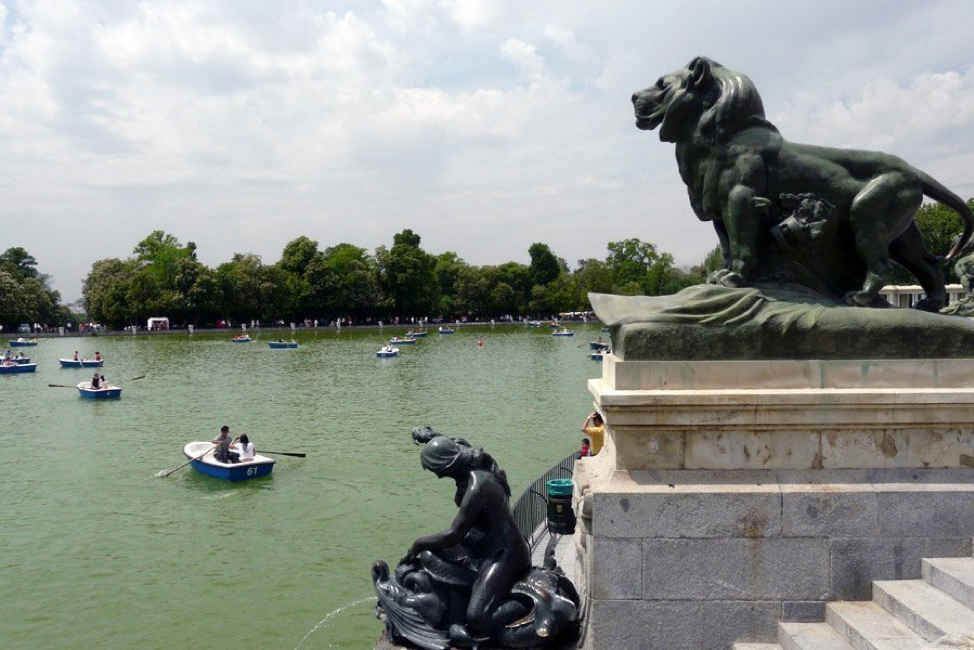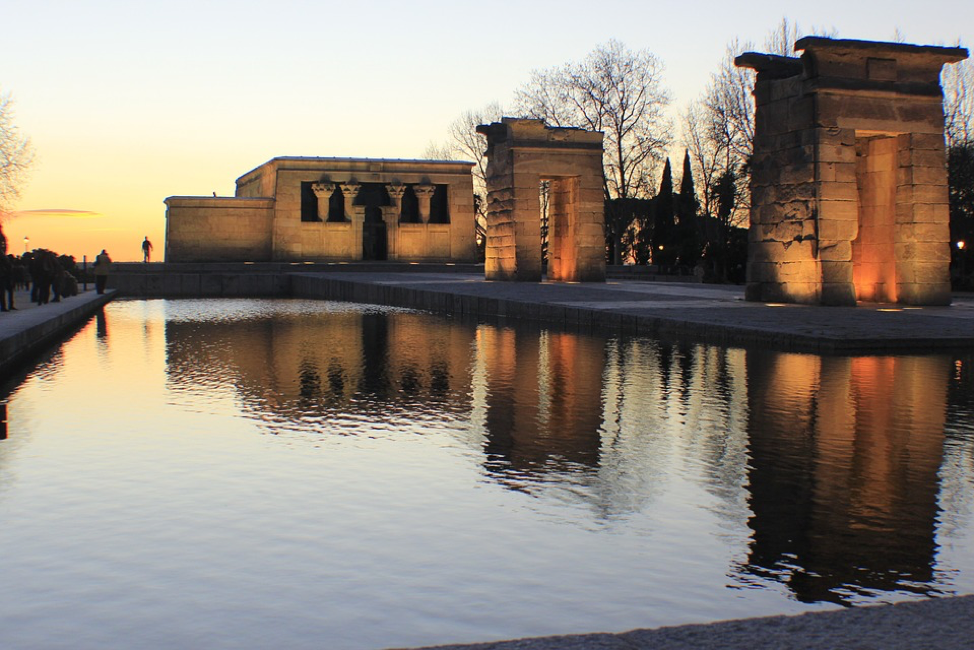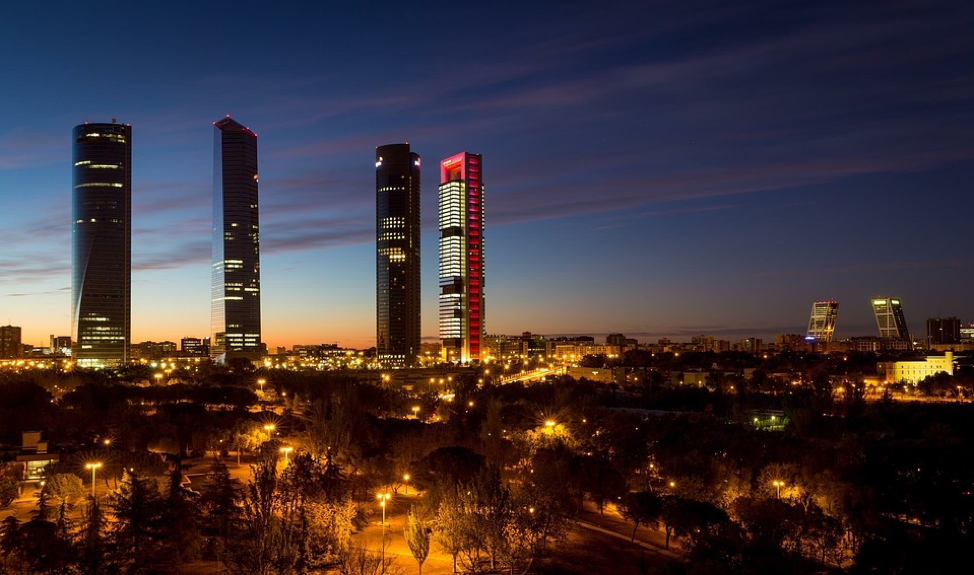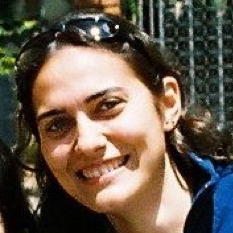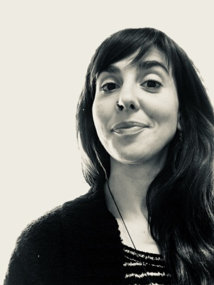This week we are so excited to introduce you to 500 Women Scientists Madrid. The new pod launched in March 2018, but already they have started to make waves in Spain. By brilliantly using International Women's Day as their launch point combined with strategic interviews, they have been able to quickly grow their group, start serious discussions, and are leading the charge in Europe! Follow the pod on Twitter @500WomenSciMAD and read on to get to know how the Madrid pod is changing the face of science in Spain.
(banner photo: International Women's Day 2018 in Madrid)
Location: Madrid, Spain
Number of women: 108 (and still counting!)
Frequency of meeting: Once a month.
Mission statement: We launched 500WS Madrid five months ago, and it is taking some time for us to engage new members and put all our thoughts together. In our meetings, we are still discussing what we want our goals to be for the pod, as well as defining our mission statement through a consensus process.
We share the common goal of making science more open, inclusive and accessible, and our initial purpose is to empower women by providing a supportive structure and fostering a safe space for conversation. We would also like to inspire girls and young scientists and make their mentoring and research paths more inclusive.
Our current activity is focused on three objectives:
- Improving mentorship for women
- Increasing the visibility of women in science
- Mitigating bias and discrimination in our daily lives
How did you come to this mission, why is it relevant to Madrid and to Spain?
In our first meetings, we realized that sharing and comparing different experiences let us find the common objectives for the pod. Even if we came from different scientific areas, universities and research centres, we have faced similar gender-related issues in our scientific careers. Our conclusion was that our work should be focused on trying to change the system for the next generation and paving the way for more women in scientific and technical roles.
In Spain, women are significantly underrepresented in STEM and there is an important lack of role models for girls and young women who are interested in science and technology. We think that it is important to raise public awareness about this situation in our country, as well as to start discussions into how both women and men could do more to avoid bias and deal with discrimination in STEM.
In this sense, we find mentoring activities extraordinarily useful for guiding future generations of women scientists and helping them see the many existing paths and possibilities. We know that we need to go to places where we will be able to effect real change in a culture, and it seems that schools and universities could be good candidates to start with.
How have you grown your pod and ensured a diverse group of women scientists attend the pod meetings?
We are making a huge effort in dissemination. We decided to launch the pod on March 8, on International Women’s Day. This year, Spanish Women celebrated as never before so we had a good impact on social media. We started a Twitter campaign where we tagged many associations and universities, as well as some people from the media. We had an awesome response to this campaign and, since we also managed to launch the website this day, we had women signing up from the first moment!
We had a lot of new members in a few days and also got into the news thanks to an interview conducted by a renowned Spanish science communicator, América Valenzuela. More women joined 500 Women Scientists during the following months, as we continue disseminating the initiative.
Regarding diversity, we would like to engage women at all levels of science education. We have women who are undergraduates, graduate students, and postdoctoral researchers and from very diverse areas, including: biology, geology, paleontology, astronomy, and engineering. We are now trying to engage more senior researchers and professors, those who really do wield the influence that could more rapidly lead to effective change.
Can you talk about your past activities & successes, any favorites you want to share, and how are they important to Spain?
We are very proud of how our pod has grown these months. We have had just two meetings but we have been very active and, as we get involved in more activities, more women are interested in being part of 500 WS Madrid.
We have also worked hard on developing some useful resources for communication and dissemination, such our website and our Twitter and Facebook accounts. For instance, we are posting on Twitter brief profiles of members of 500WS Madrid and also relevant news about other women scientists, women associations, and projects that could be of interest for our community. We plan to extend our activity in social networks to Instagram, and make available a Telegram channel for instant messaging.
Our participation in interviews and scientific blogs, where we talked about 500 Women Scientists, has helped us to disseminate our message to the general public and get more people involved in the initiative. We have also collaborated in a campaign coordinated by change.org which aim is to bring visibility to the “maternal wall bias” in science in Spain. This initiative got into the national news so we expect it to have the necessary impact to mitigate, directly or indirectly, this kind of discrimination in Spain.
Within our ongoing activities, we are developing a database of Spanish women scientists, including both senior and junior researchers, as well as other women related to science, such as science communicators, journalists, educators, policy makers, etc. This started with a Twitter campaign where we asked people to mention women scientists (or related to science) that they know. By concatenating Twitter mentions, we collected the names of more than 300 Spanish women scientists. With this information, and other additional data collected automatically from public profiles, we are currently developing a database (similar to “Request a Scientist”, but in Spanish). This database does not exist in Spain yet, so it could be a great resource for finding women scientists to collaborate on projects or serve as experts (Anyone interested in being part of the database can fill the form there).
What future plans does your pod have?
Next September 2018, we plan to participate in the First National Congress on Physics, organized by the Spanish National Association of Students in Physics and dedicated to increase the visibility of women in this scientific area. We will be there representing 500 Women Scientists Madrid and presenting our activities in an invited talk.
We have also organized a workshop for kids, designed to challenge gender stereotypes in science, that will take place during the 2018 Semana de la Ciencia de Madrid (Madrid Science Week) in November. In collaboration with visual artist Gloria Lapeña, kids will draw how they imagine a particular scientist whose research we will briefly explain. Afterwards, they will meet the scientists in person (all women in STEM), and they will draw them again while listening to a brief talk about their research. With this workshop we aim to challenge kid's preconceptions of what a scientist looks like while also highlighting the research of women in science in the Madrid area.
In the fall we are planning a “Wiki-edit-a-thon”, where we would like to add to Wikipedia as many Spanish women scientists’ profiles as possible.
Finally, we are collaborating with a Spanish citizens’ initiative called "Ciencia en el Parlamento" (Science in Parliament), which consists in bringing science to politics by means of debates, roundtables and public discussions between scientists and politicians in areas of public interest. We believe that it is crucial for researchers to get out of the lab and speak to our politicians, conveying the impact and importance of the work that we do, and assisting them in evidence-based decision making. 500WS Madrid supports this initiative, together with other Spanish research institutions, public initiatives and associations. In addition, one of the pod coordinators will serve as technical scientific advisor for politicians in the kick-off event of Ciencia en el Parlamento.. This event will take place next November at the Spanish Congress within the celebration of the 40th anniversary of the Spanish Constitution.
Do you have advice for other international pods? How have you connected to other pods and the 500WS organization as a whole?
Even if you do not have many women in the group, great things can be done! Keep organizing activities and try to make contacts with other associations, so you can get in touch with more women that could be interested in 500WS. Social networks, as well as a website, can be a huge help to show people who you are and your motivation to do this.
It is also useful to be in contact with other coordinators and members on the coordinator Slack chat to get updates and relevant advices. In order to be more involved, we are also collaborating with the main organization of 500WS in the development of the pod resources website, so we get any important update at first-hand! Finally, we are involved in the launch of 500 Women Scientists EU, a new group to coordinate European pods.
Pod Leaders: Diana, Ruth & Aida
Diana de la Iglesia is a computer scientist (PhD) who specializes in the application of Artificial Intelligence techniques in biomedicine, specifically in cancer research. Her work is currently focused on the automatic analysis of huge volumes of clinico-genomic data to model the progression and treatment of cancerous conditions. Diana is involved in diverse social activities such as Ciencia en el Parlamento. Twitter: @DiandelaIglesia
Ruth Hernández has a degree in Geological Sciences from the University Complutense of Madrid, where she is currently a PhD candidate. She is the founder of the website turismogeologico.org, where her main task is to show the importance of geodiversity, geological heritage and its geoconservation always based on two fundamental pillars, sustainability and accessibility. Twitter: @RuthHdzParedes
Aida Verdes is an evolutionary biologist interested in the evolution of convergent traits, currently studying bioluminescence and venom in marine invertebrates. She earned her PhD from The City University of New York and is now a postdoctoral researcher at Universidad Autónoma de Madrid. Aida is passionate about science education and communication, and serves as an ambassador for the New York Academy of Sciences. Twitter: @aida_verdes




